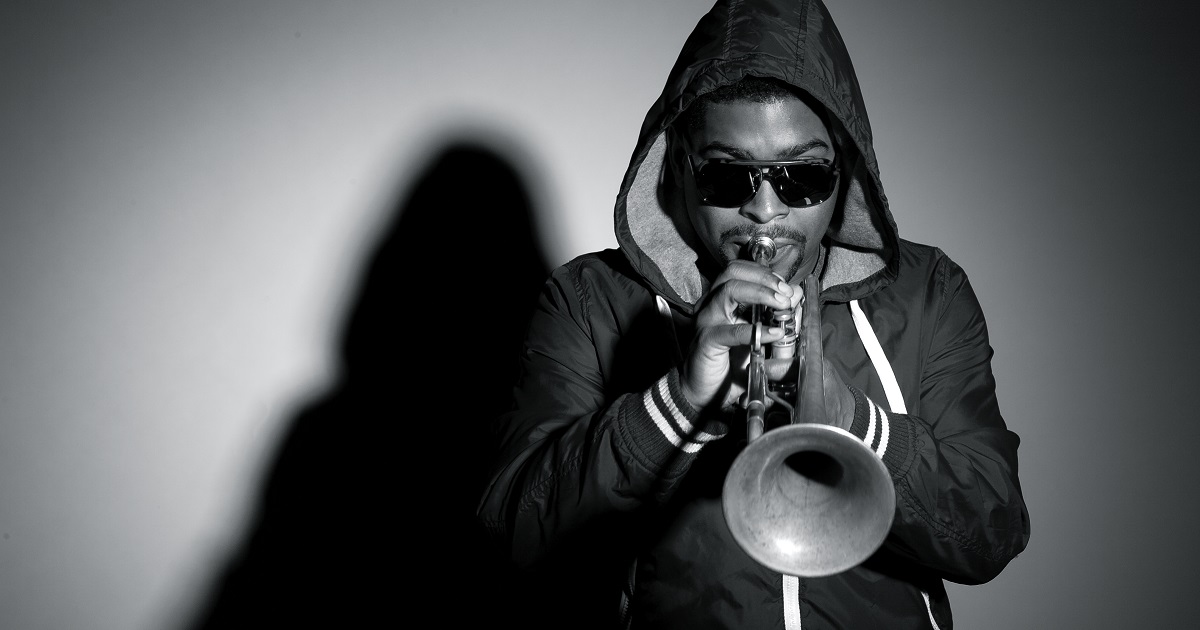
Corey Wilkes talks about the heart of good music
JazzArts Charlotte caught up with Corey Wilkes between his tour through Europe and his drop-in at Thursday’s Trumpet Summit at Andy’s Jazz Club in Chicago.
Where have you been playing recently?
A lot of places. Each country has a different vibe. But in Europe, there is a high regard for art. They respect their history, as a part of every day life. I was setting up for a workshop in France, and kids were peaking in the door, trying to figure out how to get in, like it was a hip hop concert. Even Tokyo has regular blues club. In Japan, it is very quiet during the set, and then after a song, its like a touchdown at a football stadium. In London, we played at a huge cathedral. They have concerts every week. They were roaring like it was a big party. I enjoy the different audiences, especially the European ones full of young people.
How did you get started in music?
One thing about trumpet. I don’t know anyone who picked trumpet. The trumpet picks you.
As a little kid, I was always going into into the department stores and playing on the electronic keyboard they set out. I got one on my 6th birthday. I was never naturally great. Eventually I got a guitar from my uncle. My friends and I would just jam in the garage. We didn’t know what we were doing. In school, they helped you pick an instrument. By the time I got in the room, the only thing left was trombone. I came home with the piece of paper that said “trombone” and I was gonna pick one up. Then I was watching Jazz at Lincoln Center, and a song captured me. I was like, wow, by this instrument I didn’t know. I pointed and told my dad “I want THAT.” My dad looked at me, and said “I’m gonna write trumpet on this paper for school, and you WILL play it.”
For the upcoming JAZZ ROOM show, why Miles Davis?
I’m like an octopus – I play everything from a jazz trio to the 40 piece orchestra I am arranging. But Miles Davis was the catalyst for the trajectory of my career.
I was at this band competition. As normal, the adjudicator got on stage, asked us to open up and it started at my trumpet solo. I played it, he stopped the band, turned to the audience and asked “did you hear that?” He restarted it and did it again. I was getting nervous and putting more and more heart into it. After the third time, he said “that kid has it”. Then afterwards, he pulled me to the side, and told me to checkout some Dizzy Gillespie and Miles Davis and listen to the horns. I went to the library that very weekend, picked out some CDs and listened. The first CD was Miles Davis. I became a music junkie, absorbing the music, learning the language.
He was the greatest jazz innovator of all time. Miles Davis changed the trajectory of music several times, from cool to modal jazz, to funk fusion. Of course, he wasn’t just an innovator of music, but of style, clothing, the way he carried himself. He captured all that profoundly in the music. Kind of Blue is still the all-time greatest jazz record.
You are a part of so many kinds of music and types of audiences. What makes great music?
To me, music genres are just music – I enjoy playing it all. The most important part is, like when we kids played in the garage band, that we have fun. People forget about that. You have to find that balance of technique and the heart and passion. I know some serious technicians on the horn, but they lack soul. How could you play so well and not move anybody? You can hear it in the music – who’s having fun and who’s not. When you come to a concert of mine, it’s not just the notes. There is a transmission of energy and soul.